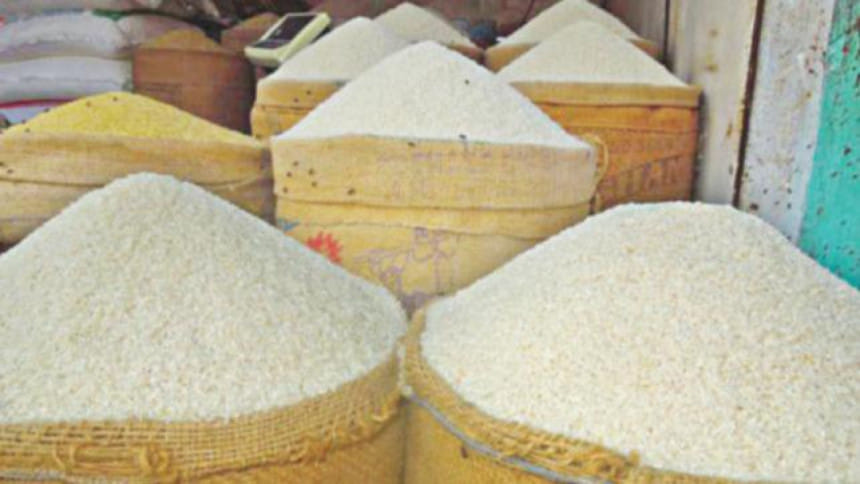No respite for the ultra-poor

After two years, government food reserve has apparently crossed eight lakh tonnes and import of rice and wheat has surpassed 20 lakh tonnes. But despite this increase in supply, the price of rice has not gone down—much to people's dismay. According to the state-run Trading Corporation of Bangladesh (TCB), in the last one month, fine rice has been selling at a retail price of Tk 54-68 per kg while coarse rice has been selling at Tk 44-46 per kg, as reported by a leading Bangla daily. The increase in overall rice price in the last one year stands at a massive 21 percent.
Experts seem to be in agreement about the fact that rice price should have been below the current retail price, given the spike in Aman rice production along with the abovementioned reasons. And the fact that it is not the case points to irregularities in the market which we believe include hoarding of rice by traders who hope to manipulate prices. While the food ministry plans to sell rice at Tk 10 per kg to 50 lakh ultra-poor people under its Food-Friendly Programme starting this March or April, there is reason for concern. Back in 2016 when this project was undertaken, allegations were rife that many influential people were receiving rice meant for people from low-income groups who are the hardest hit every time rice price increases.
Neither is rice crisis a new phenomenon for Bangladesh nor are the irregularities we see in the market. It is clear that the government needs to come up with new strategies to clamp down on hoarders whose interference in the natural market mechanism continues to worsen the plight of the poor. Furthermore, the government should ensure that rice allocated for the ultra-poor under the commendable initiatives that they have undertaken is not misappropriated.

 For all latest news, follow The Daily Star's Google News channel.
For all latest news, follow The Daily Star's Google News channel. 




Comments